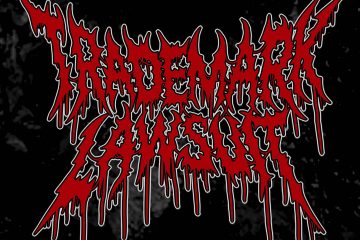I can’t tell you how many times I’ve heard “I don’t need a will, I don’t have much of anything!” or “I don’t think I can afford to get a will prepared.” I’m not here to tell you you have to get a will, but I can tell you it makes life (and, not to sound too morbid, but also death) much easier for your heirs and loved ones if you do.
And, unlike years gone by when putting together a will required someone to sit and type each and every letter… of each word… of each line… of each page, today’s word processing makes will drafting more efficient than ever. For people with simple estates who need simple wills, this means it probably costs less than you’d think to get a simple Last Will and Testament, Power of Attorney*, and Advance Medical Directive* drafted for you and your husband or wife, or for your beloved Granny.
What is a Will? This may seem like a silly question, but this is actually worth taking a moment out to define and describe. A Will is a legal document that reduces a person’s—in the language of estate law, this person is the “Testator“—wishes for the distribution of their property following his or her death to a recorded form (usually, a written document).
What Qualifies as a Will? This is a tougher question. Under Virginia law, there are requirements for a will to be given binding, legal effect. Here are a few (reminder: this blog is not legal advice, and you should consult an attorney to draft a will, not this simplified guide!):
First Requirement: A valid will must be signed by the testator. Seems simple enough? Not so fast. What about people who lose the ability to write or sign documents? Can they not get a will made? Of course they can. Those individuals with the capacity to make a will but who are unable to physically sign can have a proxy sign in the presence of the testator and in place of the testator.
Second Requirement: A valid will must be signed by two (2) competent witnesses who “are present at the same time” and who “subscribe the will in the presence of the testator.” Subscribe, as used here, means “sign at the bottom” of the will.
Caveat: A holographic (handwritten) will is valid if it is “wholly in the testator’s handwriting is valid,” if it is “wholly in the testator’s handwriting,” “signed by the testator,” and “is proved by at least two disinterested witnesses.” This doesn’t mean you should hand Granny a pad and a pen and ask her to write out, by hand, all her last wishes. But if that’s all she can do, it’s better than nothin’.
Third Requirement: The testator of a valid will must be “competent” at the time of its making. Competency for these purposes is essentially a two-part test: first, does the testator understand and comprehend that he or she is making a will; and second, does the testator know and understand what property he owns? There may be cases where a person is very ill but nevertheless is technically competent to make a will.
I love to prepare wills for seniors and young adults alike, so if you want to talk to me about getting some professional assistance, E-mail me, Call me at (804) 250-8911 or fill out the form available here.
TL;DR: EVEN IF YOUR ESTATE IS SMALL, A WILL IS NEVER A BAD IDEA TO CONSIDER WHEN MAKING END-OF-LIFE PLANS
Notice: The content of this blog entry is not, and should not be construed as, legal advice. To the extent this blog entry is a legal advertisement, it originates with the Law Office of Thomas Bishop, licensed to practice law in the Commonwealth of Virginia.
*We’ll talk about these documents and their purposes in a future entry.



0 Comments